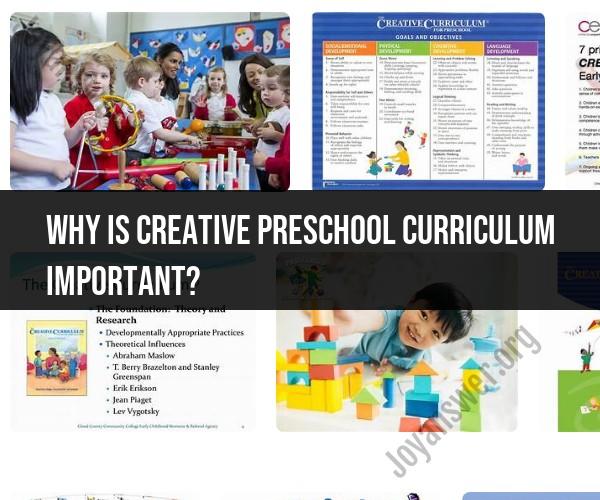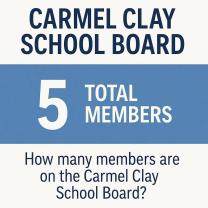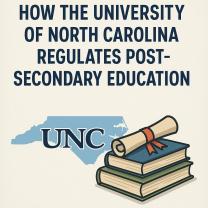Why is creative preschool curriculum important?
A creative preschool curriculum is important for several reasons as it plays a significant role in a child's early development and education. Here are some key reasons why a creative preschool curriculum is essential:
Fosters Cognitive Development:
- Creative activities such as art, music, and imaginative play stimulate a child's brain and promote cognitive development. They encourage problem-solving, critical thinking, and creativity.
Enhances Social and Emotional Skills:
- Creative activities often involve collaboration, sharing, and communication with peers. This helps children develop essential social skills like teamwork, empathy, and effective communication.
Encourages Self-Expression:
- Creative activities provide children with opportunities to express themselves and their emotions. This is crucial for building self-esteem and self-confidence.
Promotes Fine and Gross Motor Skills:
- Engaging in creative activities like drawing, painting, and playing with clay helps develop fine motor skills, while activities like dancing and outdoor play promote gross motor skills.
Fosters a Love for Learning:
- Creative activities make learning fun and enjoyable. When children associate learning with creativity, they are more likely to develop a lifelong love for learning.
Cultural and Diversity Awareness:
- Creative activities often incorporate cultural elements, stories, and traditions. This exposure helps children appreciate and respect diversity from an early age.
Supports Language Development:
- Creative activities often involve storytelling, singing, and verbal communication, which contribute to language development and vocabulary expansion.
Prepares for School Readiness:
- A creative preschool curriculum introduces children to early literacy and numeracy concepts in an engaging way, helping them build a foundation for academic success.
Reduces Stress and Anxiety:
- Engaging in creative activities can have a calming effect on children, reducing stress and anxiety levels. It provides an outlet for self-soothing and relaxation.
Nurtures a Growth Mindset:
- Creative activities encourage children to embrace challenges and view mistakes as opportunities for learning and improvement. This fosters a growth mindset, which is valuable for academic and personal growth.
Parent-Child Bonding:
- Creative activities often involve parents or caregivers, promoting bonding and positive interactions between adults and children.
Prepares for Future Success:
- Creative thinking and problem-solving skills are highly valued in today's rapidly changing world. A preschool curriculum that nurtures creativity prepares children for future success in various fields and careers.
In summary, a creative preschool curriculum goes beyond traditional rote learning and standardized assessments. It recognizes the importance of holistic development, including cognitive, social, emotional, and physical aspects. By fostering creativity and a love for learning, it sets a strong foundation for a child's future academic and personal growth.
The Significance of Creative Preschool Curriculum
A creative preschool curriculum is a curriculum that focuses on developing children's creativity. Creativity is the ability to think outside the box and come up with new ideas and solutions. It is an important skill for children to develop, as it will help them to succeed in school and in life.
There are many benefits to a creative preschool curriculum. Creative preschool programs can help children to:
- Develop their problem-solving skills
- Think critically
- Be more innovative
- Express themselves creatively
- Be more confident
Creative preschool programs can also help children to develop a love of learning. When children are engaged in creative activities, they are more likely to be motivated and to learn new things.
Fostering Creativity in Early Education: Why It Matters
Creativity is an essential skill for success in the 21st century. The world is changing rapidly, and children need to be able to think creatively in order to adapt and succeed.
Creativity is also important for children's personal development. Creative activities can help children to express themselves, to build confidence, and to develop a sense of self.
Unleashing Young Minds: Creative Elements in Preschool Curriculum
There are many ways to incorporate creative elements into a preschool curriculum. Here are a few ideas:
- Provide children with a variety of art supplies and materials, such as paints, markers, crayons, and clay.
- Encourage children to explore and experiment with different art techniques.
- Set aside time each day for children to engage in creative activities, such as art, music, and dramatic play.
- Read stories to children that promote creativity and imagination.
- Take children on field trips to museums, art galleries, and other creative spaces.
- Provide children with opportunities to work on creative projects, such as building a fort, putting on a play, or writing a story.
By incorporating creative elements into the preschool curriculum, teachers can help children to develop their creativity and to reach their full potential.
Here are some additional tips for fostering creativity in early education:
- Create a safe and supportive environment where children feel comfortable taking risks and trying new things.
- Be a role model for creativity. Share your own creative ideas and experiences with children.
- Encourage children to ask questions and to explore their interests.
- Provide children with opportunities to collaborate with others on creative projects.
- Celebrate children's creativity, no matter how it is expressed.
By following these tips, teachers can help children to develop a love of creativity and to become innovative thinkers.












